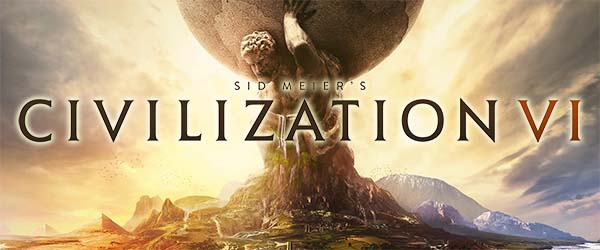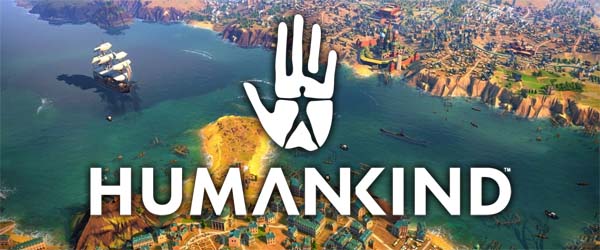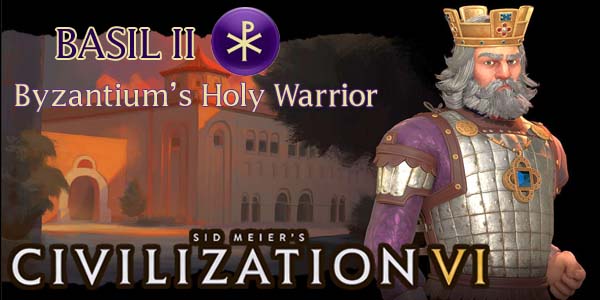
The announcement trailer for Sid Meier's Civilization VI made me very excited. Not just because there was a new iteration of my favorite PC game franchise, but also because the message of the trailer made me excited for the possibility that Civilization VI would take a much more humanist and globalist approach to its gameplay and victory conditions.
The Civilization games have always had a very optimistic tone, treating human development as being constantly progressing forward. Growing your civilization and building more things is almost always better. For the most part, Civilization treats human history as a constant forward march towards a better, more prosperous tomorrow.
This is despite the games including mechanics for "Dark Ages", climate change, nuclear fallout, occasionally pandemics and plagues, and so forth. Regardless of these mechanics, the civilizations of the game never regress, unless it's by the sword or gun of a conquering civilization, in which case, that other civilization is glorified. Climate change or nuclear winter can run rampant and render the surface of the Earth borderline uninhabitable for modern human life, but a civilization can still accumulate enough science or tourism or faith or diplomatic votes to win one of the various victories, or they can be the sole surviving civilization, presiding over a barren wasteland. But it's still a win.
Civilization is a game about cutthroat nationalism.
Despite vague gestures towards diplomatic cooperation and solving global crises, Civilization is, at its core, a game of competitive, cutthroat, zero-sum nationalism. This design ethos is probably the result of Civilization's inspirations coming from competitive board games like Avalon Hill's Civilization and Risk. "Our country is better than your country," and the whole game is an exercise in proving that. Further, one civilization's success must come at the expense of every other civilization's failure, even if those civilizations are friends or allies. One civ wins; all others lose. Every decision made is done to move your civilization closer towards one of those victory conditions, and every diplomatic agreement, trade deal, or alliance that you strike is only a temporary means to that end.
So what did Civ VI's trailer do to change my expectations for that game?
This essay is also available in video format on YouTube.
The trailer
Well, first, it's important to know how previous trailers and intro cinematics for Civilization games had introduced their respective games. Usually, they emphasized a single nation or leader doing great things. Winning wars, building wonders, developing advanced technologies, and so forth. And they usually ask the viewer: "How will you run your civilization?" and "Will your civilization stand the test of time?"
The trailer for Civilization VI takes a different approach. Let's take a look:
Civilization VI's announcement trailer celebrates the collective achievements of all of humanity.
"We are the explorers, the inventors, the architects of change, the builders of a better tomorrow.
We strive, we dream, we inspire, always towards something greater.
All the odds we defy, the risks we take, the challenges we endure, only make us stronger.
There's no end to our imagination, and no limit to civilization."
- Sean Bean narrating Civilization VI announcement trailer
Notice the language that is used. The Civ VI trailer uses plural language such as "we", "us", and "out". "We are the builders of a better tomorrow.". "the challenges we endure, only make us stronger." "There is no end to out imagination, and no limit to civilization.". And so forth. The trailer for Civilization VI isn't a celebration of one civilization or leader rising above all others and being crowned the "greates" civilization; it's about the collective achievement of all of humanity -- not a civilization, but all human civilization!
It's a beautifully humanistic expression that emphasizes plurality and doesn't elevate any one culture or race or nation above any other. It celebrates the collective technological advancements, engineering, art, and struggles of all of humanity, without implying that any one nation or group has the best stuff. It emphasizes that we can overcome challenges by working together, and come out the other side stronger for it. It implies that when we cooperate to build something or solve a problem, the result will be better than what any individual entity can accomplish. [More]

This will be the second part of a 2-part Retrospective on Civilization VI. The first part features my personal list of Top 10 Good Ideas that Firaxis put into the game, and this second part will be the Top 10 Bad Ideas. If you haven't read the Good Ideas yet, then I highly recommend you check that out first, as there will be several topics in this list that will build on what was said in the previous list. In fact, there will be some topics that are appearing in both lists, so I hope you'll read the good things that I have to say before reading the bad.
I also don't want to be a complete downer, and would like to provide constructive feedback. So wherever possible, I will try to make suggestions on how I think Firaxis could improve on some of these ideas if they chose to revisit them for future games. And some of these ideas are certainly worth re-visiting.
This content is also available in video essay format via YouTube.
[More]
07ea0b45-5d98-4ac1-9e2c-064bddd336aa|1|5.0
Tags:Civilization VI, Civilization VI: Rise and Fall, Civilization VI: Gathering Storm, Civilization VI: New Frontiers Pass, Sid Meier's Civilization, retrospective, top 10, privateer, pirate, world congress, agenda, leader, museum, trade route, wall, diplomacy, disaster, climate change

With the New Frontiers Pass for Civ VI over, an "Anthology" edition of Civ VI on sale, and no news at all regarding future DLC or expansions, I'm assuming that Firaxis has finished with Civ VI. As such, I want to look back on the game and reflect on the things that I liked most about it, and the things that annoyed me the most.
After the lifespan of Civilization V had ended, I wrote up a pair of retrospective blogs about my personal Top 10 Good Ideas and Top 10 Bad Ideas that went into that game. I'll be doing the same thing now with Civ VI.
I want to stress that this is a list of 10 good and bad ideas -- not necessarily good and bad mechanics. Some of the good ideas will be ideas that I like in principle (or on paper), but which might need more iteration before they truly work as intended. In contrast, there may be some bad ideas that work fine mechanically, but which hurt the "flavor" or theming of the game, in my opinion.
This is, of course, a subjective list of personal favorite and disliked concepts in the game. I'm sure there will be a lot of disagreement, and some of the things I write here will probably be somewhat controversial with the rest of the player base. So I'm interested in reading others' feedback. So if you agree with any of my points, or you vehemently disagree, feel free to post a comment and share your thoughts.
This content is also available in video essay format via YouTube.
This first post will cover my personal Top 10 Good Ideas, and I will follow it up with the next post being about the Top 10 Bad Ideas. [More]
549df3d2-8086-446d-bb11-35103ccef5b9|1|5.0
Tags:Civilization VI, Civilization VI: Rise and Fall, Civilization VI: Gathering Storm, Civilization VI: New Frontiers Pass, Sid Meier's Civilization, retrospective, top 10, music, Christopher Tin, Baba Yetu, agenda, wall, scout, skirmisher, ranger, diplomacy, alliance, disaster, climate change, barbarian, city state, leader

It's going to be virtually impossible to review Humankind without frequently comparing it to iterations of Sid Meier's Civilization. Civ has absolutely dominated (and almost completely monopolized) the historical turn-based strategy genre. There have been plenty of space and sci-fi-themed 4x strategy games, ranging from Master of Orion, to Galactic Civilizations, to Stellaris, and even Amplitude's own Endless Space; but not a whole lot in the more Earth-bound sub-genre. I've also been a huge Civ fan (as the readers of my blog can no doubt tell), so it's hard for me to look at any game in this genre and not partially judge it through the lense of comparing it to Civ.
So I'm not even going to pretend to judge Humankind strictly on its own merits, in a vacuum. I simply can't. I'm not sure if anyone can. Amplitude, as a company, clearly looked to Civ for inspiration, took lessons from the successes and failures of its previous strategy games, and said "hey, we want a piece of that pie too." But despite the surface-level comparisons to Civ, Amplitude takes a very different approach to game design. While Civ has always been very firmly rooted as a "digital board game", Humankind takes a much more story-driven and "simulationist" approach, akin to the sort of thing that you might see in a game like Crusader Kings. I think this approach works, and it does a good job of separating Humankind from Civilization.
Culture wars
Perhaps the biggest deviation that Humankind makes from Sid Meier's Civilization is the way that it handles the game's civilizations themselves. In Humankind, you don't play as a single civilization throughout an entire campaign. Instead, each era you have the opportunity to select a new culture from a list of era-specific cultures. I like this concept a lot in principle, but also have some misgivings about the way it works out in practice.
Empires transition into a new culture at the start of each era.
On the one hand, it's great to see a game like this recognize the fact that civilizations aren't singular, monolithic cultures that exist forever, unless they are conquered or die off completely. That gaming paradigm (which Civ has always embraced) ignores the reality that cultures change and evolve over time. They change with the times, and blend elements from other neighboring cultures. And even if a nation or empire falls or collapses, it doesn't just disappear off the face of the planet overnight. It's people get absorbed into whatever nation or empire replaces it, and those people continue to influence the development of that new culture.
But this isn't exactly how Humankind works. The cultures of the game don't gradually transition or evolve due to social, economic, political, or geographic pressures and influences. Instead, at arbitrary points throughout the game, each empire completely changes its culture in a single game turn. And you aren't locked into choosing a related or similar culture either. You can pick any culture that is still available from the given era, no matter how separated that new culture might be from your old culture -- whether that be geographic separation, ideological separation, or even racial separation. I can be Greek one turn, and then suddenly be Aztec the next, and be Khmer the following era.
I was hoping for a system in which players would have to select from a list of related cultures when transitioning into a new era. For example, I was imagining that being Classical Romans means that, when the medieval era hits, I would have to chose between a related culture like Byzantine, Holy Roman, Ostrogothic, Franks, or Papal States. Then, depending on which I picked, my culture would continue to shift to another related culture in the following era. For example, if I picked Byzantine as my medieval successor to Rome, then my early modern culture choices would be things along the lines of the Ottomans or Orthodox Rus; whereas, if I had gone with the Papal States or Holy Roman Empire, then my choices would be things like Venetian, German, or French.
Changing cultures each era is no more silly than ancient
Abraham Lincoln leading ancient America in a bear-skin hat.
Instead, these transitions from one culture to another over the span of a single turn can be very jarring in Humankind. But I guess it's no less jarring than seeing an ancient era Abraham Lincoln leading America in 4000 B.C.E. while wearing his silly bearskin tophat.
I hope that if Humankind gets expansions, that those expansions will modify this culture-changing mechanic so that there are more cultures available each era, but your choices are limited to cultures that are related to the one you were playing in the previous era. Maybe it costs influence (or maybe even fame) to change cultures, and changing to an un-related culture costs more than changing to a closely related one. I know it can be difficult to find such examples of related offshoots for every possible culture, especially for cultures that were conquered or died off in real life, but I think it's a solvable problem.
It's easy to come up with possible successors to the Roman Empire, because every culture in Europe and Asia Minor seemed to claim succession from Rome. It's a lot harder to come up with related successors to culture like the Aztecs or Maya, and it would seem insensitive or outright offensive to limit the choice of succession to the colonial European cultures that had conquered or massacred them in real history. But there are options. In the case of the Maya or Aztecs, successor options could include cultures like the various Pueblo or Navajo cultures, but I admit that's kind of a stretch.
[More]
a4a8da10-6ef4-4c31-ace5-83a2acd8f305|0|.0
Tags:Humankind, Amplitude Studios, strategy, grand strategy, history, steam, PC, Sid Meier's Civilization, neolithic, outpost, colony

Firaxis has released the final update for its "New Frontiers" DLC Pass for Civilization VI. I have attempted to create guides for each new civilization included in the packs, but there is one civilization that I just didn't have time to cover when it was first released. That civilization was part of the September 2020 update, and it is the Byzantine Empire, lead by Basil II.

It looks like "New Frontiers" represents the end of the Civilization VI life cycle. If that is true, then don't fret. If I get enough demand from my Patrons, I'll also write guides for the "New Frontiers" game modes, or go back and create / update guides for legacy leaders. We also have new games such as Old World and Humankind coming out. I'll be playing both games when they release on Steam, and can also write guides for those games, if my supporters ask for it.
By the third century AD, the Roman Empire had expanded to control much of Asia Minor and the Eastern Mediterranean. The cities in the eastern Greek, Asia Minor, and eastern African provinces tended to be larger and more developed than settlements in the west, owing largely to the Greek and Macadonian empires that had preceeded Rome's occupation of the regions. This made these cities far wealthier than most western cities, and in 330 AD, Emperor Constantine relocated the Roman capital to the city of Byzantium due to its strategic location at the epicenter of trade routes between Europe and Asia, and between the Mediterranean and Black seas. The empire was later split into Western and Eastern administrative partitions, each with its own emperor. When Rome was sacked in 476 and the Western Roman Empire collapsed, the Eastern Empire in Constantinople continued to thrive.
It can be argued, thusly, that the Roman Empire survived until the fall of Constantinople to the Ottoman Turks in the 15th century. However, even though the Byzantine Empire can trace its authority directly to Imperial Rome, and it retained much of the legal and administrative framework inherited from the Roman Empire, eastern culture had begun to diverge from western culture before even the fall of Rome. Most citizens of the Eastern Empire may have considered themselves to be "Roman", but they spoke Greek instead of Latin. The architecture utilized ornate domes and spires as opposed to the austere columns, arches, and triangles of Latin architecture. Religious practices in the east also gradually transitioned away from the dogmatic practices of the Catholic Church until the Schism of 1054 formally established the Eastern Orthodox Church. It is, thus, equally accurate to say that the Byzantine Empire came to represent its own unique culture, independent of the Western Roman Empire.

Basil II Porphyrogenitus was a life-long ruler of the Eastern Roman Empire. He was coronated as co-emperor along with his brother when he was just two years old, and ascended to the status of senior emperor at the age of 18, ruling until his death almost 50 years later. For most of his reign, he personally lead his armies into battle against Anatolian rebels, Bulgaria, the Fatimid Caliphate, and the Kingdom of Georgia, securing the empire's borders in both the west and east. Despite being away from Constantinople for so long, he also found time to distinguish himself as an administrator, reforming tax and property laws to protect poor land-owners from exploitation by wealthier elites. He also married off his sister to Vladimir I of Kiev, securing an alliance with the Kievan Rus and converting them to Orthodox Christianity. His reign was so successful, that the Empire prospered for decades after his death, despite his successor emperors being considered largely inept by both contemporary writers and modern historians. Though he is considered a national hero by the Greeks, he is known as "Basil the Murderer" by Bulgarians.
Basil II favors aggressive religious play backed up with a powerful mounted army and navy. He should seek to convert or conquer rival holy cities as soon as possible, then crush or convert his remaining rivals.
[More]
9717627d-e9ed-44d7-b203-9c3945c77bcd|2|5.0
Tags:Sid Meier's Civilization, Civilization VI, Byzantine Empire, Byzantium, Basil II, porphyrognnetos, taxis, hippodrome, tagma, dromon, Divine Guardian, entertainment complex, amenity, cavalry, heavy cavalry, navy, religion, holy city, prophet
|

| 12 | | | | | | | 60 | | 11 | | | | | | | 55 | | 10 | | | | | | | 50 | | 09 | | | | | | | 45 | | 08 | | | | | | | 40 | | 07 | | | | | | | 35 | | 06 | | | | | | | 30 | | 05 | | | | | | | 25 | | 04 | | | | | | | 20 | | 03 | | | | | | | 15 | | 02 | | | | | | | 10 | | 01 | | | | | | | 05 |
|